Related Research Articles

A jockey is someone who rides horses in horse racing or steeplechase racing, primarily as a profession. The word also applies to camel riders in camel racing. The word "jockey" originated from England and was used to describe the individual who rode horses in racing. They must be light, typically around a weight of 100–120 lb., and physically fit. They are typically self-employed and are paid a small fee from the horse trainer and a percentage of the horse's winnings.
.qa is the Internet country code top-level domain (ccTLD) for Qatar.
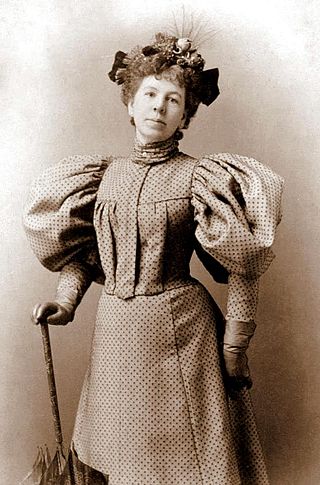
Clara Shortridge Foltz was an American lawyer, the first female lawyer on the West Coast, and the pioneer of the idea of the public defender. The Criminal Courts Building in downtown Los Angeles was renamed after her in 2002, and is now known as the Clara Shortridge Foltz Criminal Justice Center.

The number of women in the United States judiciary has increased as more women have entered law school, but women still face significant barriers in pursuing legal careers.

Charlotte E. Ray was an American lawyer. She was the first black American female lawyer in the United States. Ray graduated from Howard University School of Law in 1872. She was also the first female admitted to the District of Columbia Bar, and the first woman admitted to practice before the Supreme Court of the District of Columbia. Her admission was used as a precedent by women in other states who sought admission to the bar.
Lise Klaveness is a Norwegian lawyer and former footballer who played 73 matches for Norway's national team between 2002 and 2011. She is currently the president of the Norwegian Football Federation.
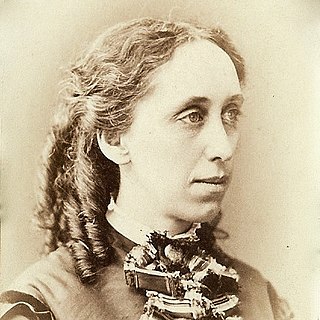
Rhoda Lavinia Goodell was the first woman licensed to practice law in Wisconsin and the first woman admitted to the Supreme Court of Wisconsin. In 1880, she also became the first to litigate an appeal to the Supreme Court of Wisconsin. She was a strong proponent of women's suffrage, abolition, temperance, and prison reform. She was also the first woman to run for city attorney.
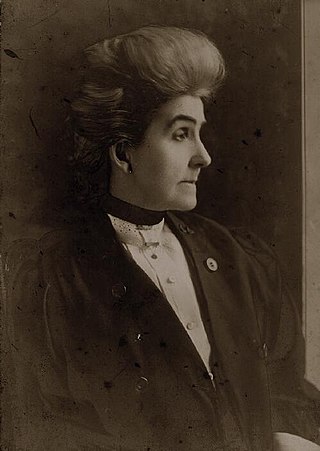
Phoebe Wilson Couzins was one of the first female lawyers in the United States. She was the second woman to serve as a licensed attorney in Missouri and the third or fourth to be a licensed attorney in the United States. She was the first woman admitted to the Missouri and Utah bars, and was also admitted to the Kansas and Dakota Territory bars. She was the first female appointed to the U.S. Marshal service. After her career in law, she played an active part in the Suffrage movement.

Qatar competed at the 2012 Summer Olympics in London, which was held from 27 July to 12 August 2012. The country's participation at London marked its eighth appearance in the Summer Olympics since its début at the 1984 Summer Olympics. The delegation sent by the Qatar Olympic Committee consisted of twelve athletes in athletics, shooting, swimming and table tennis. The 2012 Games marked the first time Qatar sent female athletes to the Olympic Games; following the 2008 Summer Olympics, it had been one of only three countries, along with Saudi Arabia and Brunei, to never have done so.
Arwa Al-Hujali was Saudi Arabia's first woman trainee lawyer.

Women's rights in Qatar are restricted by the country's male guardianship law - currently the only remaining country in the Gulf region with such laws - and influenced by the Wahhabi interpretation of Islam. Both women and men were enfranchised in the country at the same time, in 1999. Labour force participation rates of Qatari women are above the world average and among the highest in the Arab World, which comes mainly as a result of an increasing number of Qatari women who are attaining academic degrees.
Abortion in Qatar is illegal in some circumstances. Under Qatar's penal code, a woman who induces her abortion or who consents to an abortion faces up to five years' imprisonment. Individuals who perform an unauthorized abortion on a woman may face up to five years' imprisonment if she consents, and up to ten years if it is performed without her consent.
Bayan Mahmoud Al-Zahran is one of the first four female attorneys in Saudi Arabia.
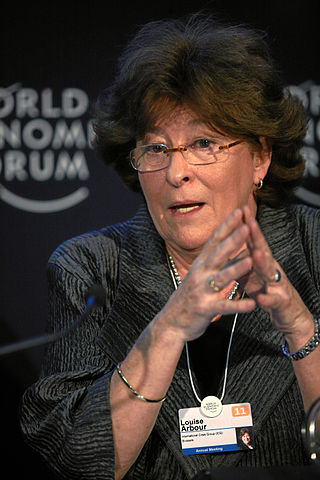
Women in law describes the role played by women in the legal profession and related occupations, which includes lawyers, paralegals, prosecutors, judges, legal scholars, law professors and law school deans.

Annie Lola Price (1903–1972) was an Alabama, United States, lawyer, who was one of the first women to become licensed in the state. She was the first woman to serve as a legal advisor for a governor in Alabama and the first woman to serve on the state's appellate court. Between 1962 and 1972, she was the presiding judge of the Alabama Court of Criminal Appeals. Price was inducted into the Alabama Women's Hall of Fame in 1976 and into the Alabama Lawyers' Hall of Fame in 2004.
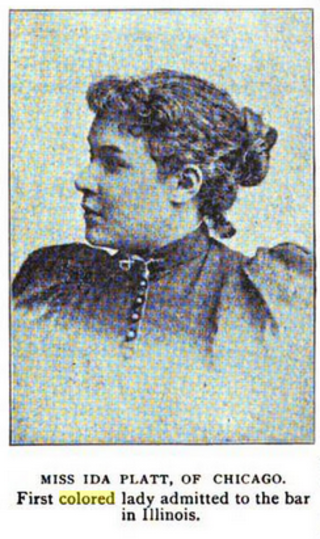
Ida Platt was an American lawyer, based in Chicago. In 1894, she became the first African-American woman licensed to practice law in Illinois, and the third in the United States.

Qatari literature traces its origins back to the 19th century. Originally, written poetry was the most common form of expression, but poetry later fell out of favor after Qatar began reaping the profits from oil exports in the mid-20th century and many Qataris abandoned their Bedouin traditions in favor of more urban lifestyles.
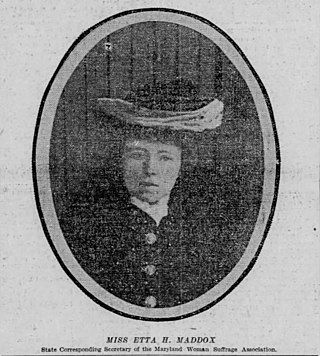
Henrietta Haynie Maddox was a vocalist, lawyer and suffragist. Maddox became the first woman in Maryland licensed to practice law in 1902. She fought for the rights of women to take the bar exam and practice law in the state of Maryland. She was a successful vocalist who studied at the Peabody Conservatory of Music before starting a second career as an attorney. She was the co-founder of the Maryland Woman Suffrage Association in 1894 and campaigned for equal pay for equal work. Maddox wrote the first Maryland suffrage bill introduced to the General Assembly on February 23, 1910.
Claudeen Bates Arthur was a Native American lawyer who was the first Navajo woman licensed as a lawyer in the United States and the first female Chief Justice of the Supreme Court of the Navajo Nation.

SheikhaAsma Al Thani is a Qatari mountaineer who is the first Qatari woman to summit Mount Everest, Mount Lhotse, and Manaslu, K2 as well as the first Qatari female to climb Ama Dablam. She is also the first Qatari person to ski to the North Pole. On her ascent of Manaslu, she became the first Arab person to summit an eight-thousander without oxygen. She is Director of Marketing and Communications for the Qatar Olympic Committee. She is also a member of the ruling family of Qatar.
References
- ↑ Sanja Kelly; Julia Breslin (2010). Women's Rights in the Middle East and North Africa: Progress Amid Resistance. Rowman & Littlefield Publishers. p. 401. ISBN 978-1-4422-0397-6.